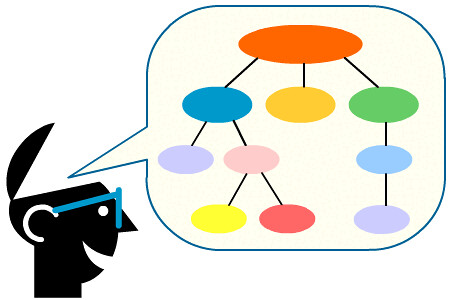That question can not be answered without asking and answering another--what is education for? In the event that problem were suddenly put to pupils in school, at to students in college, or perhaps to their parents, I doubt if all of them could, about the sporadically, offer a clear and convincing reply. The majority of us are educated because our parents with it, or because attendance at school can be a practice of society, or because it is compulsory, or because it's apparently required to success in be conclusive causes of desiring education or, at any getting from it what it must give; and when we go to back of out minds, we are more likely to rise from your meal there replete perhaps but ill-nourished. Let me, therefore, start by asking might know about seek in education. In answering this, I shall ignore to concentrate on the main of most.

Acquire the catalogues of the colleges in america. You'll find courses in innumerable subjects. Is there any common feature during these courses? Is there any aim which them all have? I believe that there is a common feature which every course given has a similar aim. Each of them focus on the first-rate; the purpose of every course is always to assist the student to find out what's first-rate in the particular subject that they studies. If it is a training course in English, the aim is always that he should know what exactly is good English; if it is a program in agriculture, that he should be aware of the best methods in framing; when it is a course in cookery or even in dressmaking, it is to demonstrate the pupil how to cook in order to make dresses really well. This is also true of a course in almost any other subject--its aim is always to show what is first-rate because subject. This is the common thread that runs through all education. Whether we're teachers or students, we ought to get firmly within our minds the notion that whatever else will come by the way, education is going to be incomplete and unsatisfactory whether it doesn't give a clear look at imagine if first-rate in the subject studied. Otherwise we might currently have some knowledge, but we shall not have access to got education.
Educated activities spring from your creative and intellectual faculties of human nature, for example literature, art, architecture and music. I will life to add sciences and architecture, however in those two subjects it is difficult for just about any nevertheless the expert to estimate quality, and many educated individuals have not the close knowledge essential to judge are employed in them. On the other hand all of us have close and daily hire one other four. Architecture surrounds him in every city, literature meets him on every bookstall, music assails his ears on his radio set and form and color is a part of everyday life. The architecture may get bad, the literature and music often puerile, the art often undeserving of the name; but that's much more reasons why we should be able, in all of then, to differentiate good from bad.
To evaluate from the literature offered us in hotel bookstands, and also by most of the music played around the radio by juke-boxes, we may be a little more discriminating over these fields than we are. If it be asserted music and art and literature aren't essentials of life nevertheless its frills, I might reply that, if so, it is curious that they're one of the few immortal things on the planet, understanding that, should a person which being remembered two thousand years hence, the only certain way is to write an excellent poem or book, compose an excellent symphony, paint an excellent picture, carve an excellent sculpture, or develop a great picture. When you have any doubts concerning this, consider why long-dead people like, Plato and Shakespeare, Michelangelo and Raphael, Ictinus and Bramante, are remembered today.